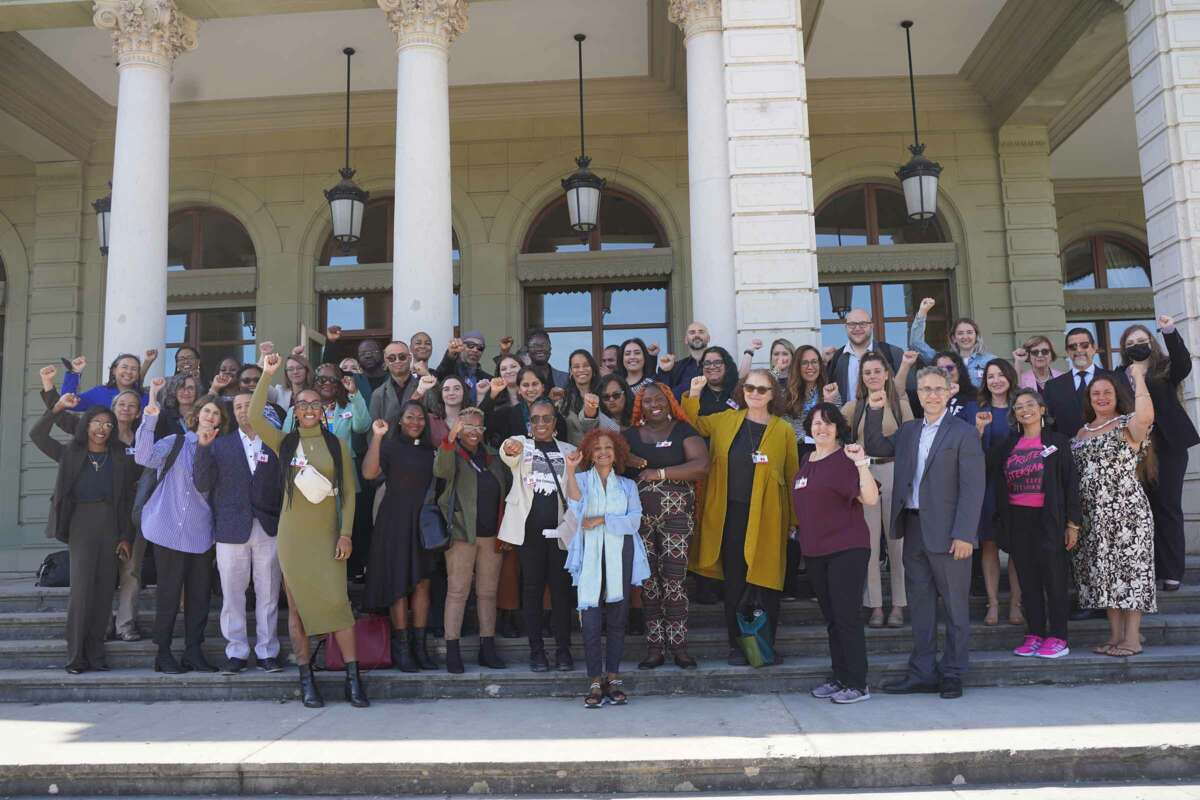Part of the Series
The Road to Abolition
Decades ago, most people had never even heard the term “death by incarceration,” the racially discriminatory and cruel practice commonly known as life imprisonment. Now in 2023, the United Nations has condemned it and called on the United States to abolish it.
In October, as I sat facing the members of the UN Human Rights Committee in Geneva, Switzerland, my mind drifted to moments during my 27 years in prison when I was told I would die behind bars. I was sentenced to life without parole in 1991, when I was 16 years old. I beat the odds and made it home in 2018. Now, five years later, I had the implausible opportunity to speak on behalf of all those in the U.S. facing death by incarceration.
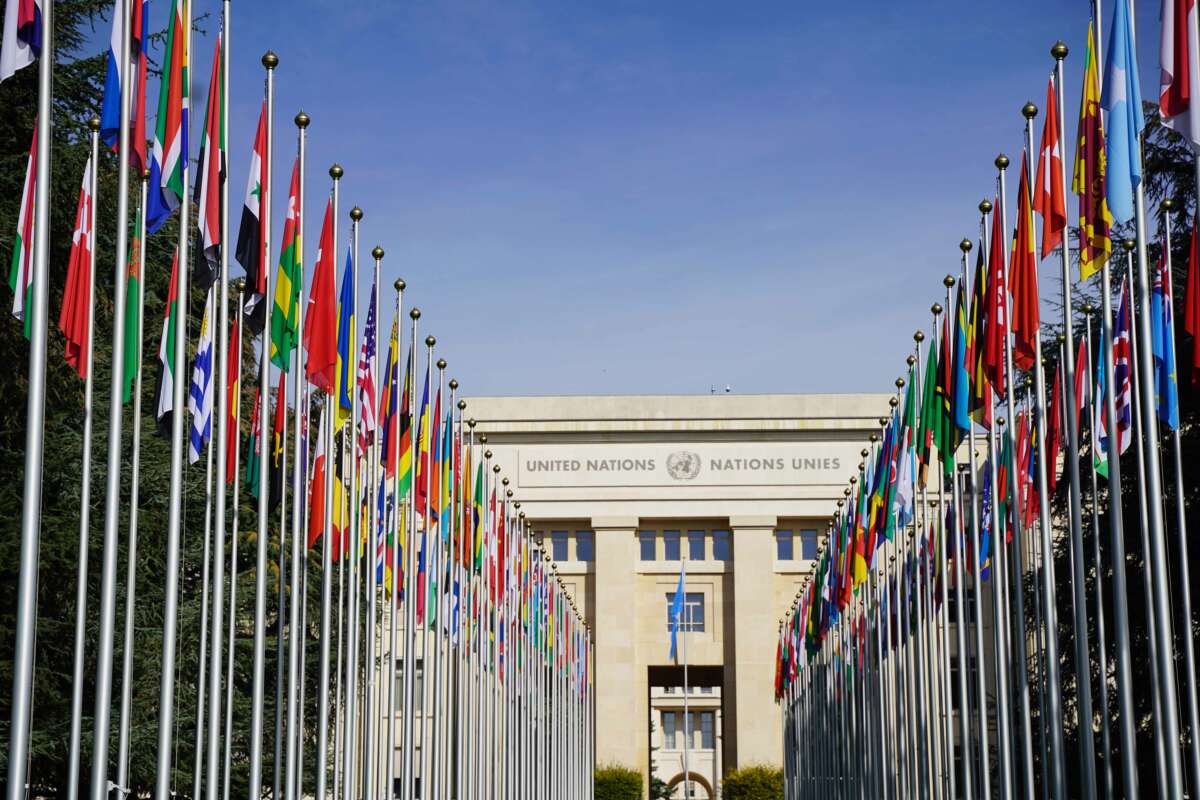
I spoke to the UN as a member of a delegation of civil society organizations to expose the human rights violations that the U.S. commits on a daily basis. On the heels of our delegation meetings, the UN special rapporteur on racism released a statement acknowledging that the U.S.’s widespread practice of sentencing people to die in prison inherently violates any stated purpose of rehabilitation. “Without the chance of parole,” the statement reads, “the rehabilitative function of the prison system is negated, reducing it to a tool of segregation and exploitation.”
Moreover, on November 3, 2023, the UN Human Rights Committee released recommendations for the U.S. They call for an end to life without parole sentencing and call for accessible parole eligibility for all incarcerated people. This is the first time the UN has acknowledged that the practice of death by incarceration violates the International Covenant on Civil and Political Rights, a treaty that the U.S. has ratified.
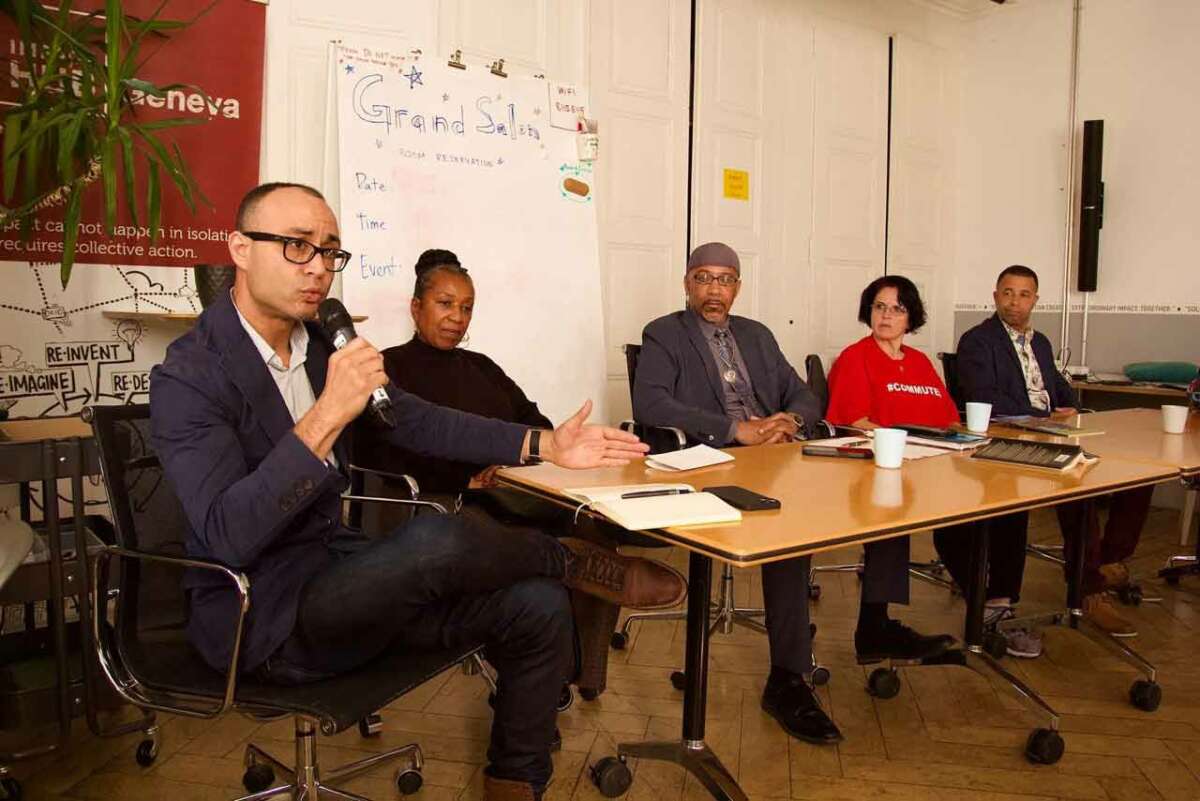
These acknowledgements from the UN are momentous — and they remind me that international pressure can make a difference. Over a decade ago, the international community forced the U.S. to face its appalling practice of sentencing children to die in prison. By the early 2000s, the U.S. had more than 2,500 prisoners serving death by incarceration sentences for offenses they were convicted of as children. Pennsylvania had more than 400, the most in the world. In 2009, my sister Anita Colon joined a similar delegation to Geneva to advocate for my release from prison and an end to the mandatory life without parole sentences for children in Pennsylvania.
The international condemnation contributed to the Supreme Court finding the death penalty unconstitutional for juveniles in 2005; and in 2012 it found mandatory life without parole unconstitutional for child offenders.
This year, I followed in the footsteps of my sister, but my mind was also on the legacy of the Black activists who submitted the historic “We Charge Genocide” petition to the UN in 1951 against the U.S. for its treatment of Black Americans. Our delegation demanded the UN assert that the U.S. abolish the practice of death by incarceration entirely — for children and adults alike. As I told the UN Human Rights Committee, “It’s not a coincidence the majority of the people serving death by incarceration sentences in the U.S. are people of color because mass incarceration has its roots in slavery and settler colonialism that treats Black, Brown, Indigenous, LGBTQ+, immigrant and poor people as disposable.” Across the U.S., there are 200,000 people sentenced to die in prison, and in Pennsylvania alone, more than 8,200 people remain oppressed by the torturous sentence to die a slow, gradual death behind bars.
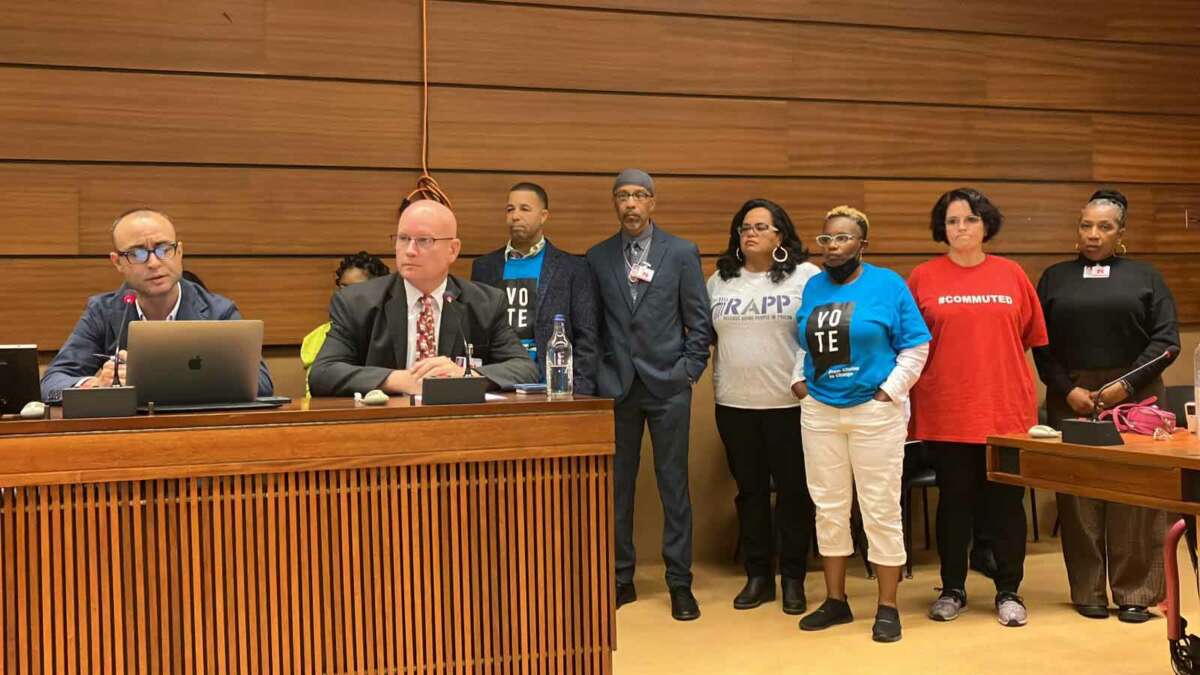
In the weeks before the Geneva convening, the UN also released a report through the International Independent Expert Mechanism to Advance Racial Justice and Equality in the Context of Law Enforcement, calling for urgent reform of the U.S.’s criminal legal system. In their own words, the mechanism “was deeply alarmed” at the “disproportionate, excessive, and discriminatory sentencing beyond life expectancy” in the U.S. Among the report’s findings were that the sentence held a particularly “disparate impact on people of African descent and other racial and ethnic minorities” and children, as “62% of juveniles serving life without parole [in the U.S.] are of African descent.”
This acknowledgment arose from decades of work from people in prison and family members, such as my sister. Over 20 years ago, around a dozen men — including myself — held in solitary confinement and sentenced to die in Pennsylvania prison joined with our families to start the Human Rights Coalition which gave rise to the Abolitionist Law Center, where I’m the executive director today. We chose these names to assert our dignity and self-determination in the face of a criminal legal system that aimed to dehumanize us into disposable stereotypes.
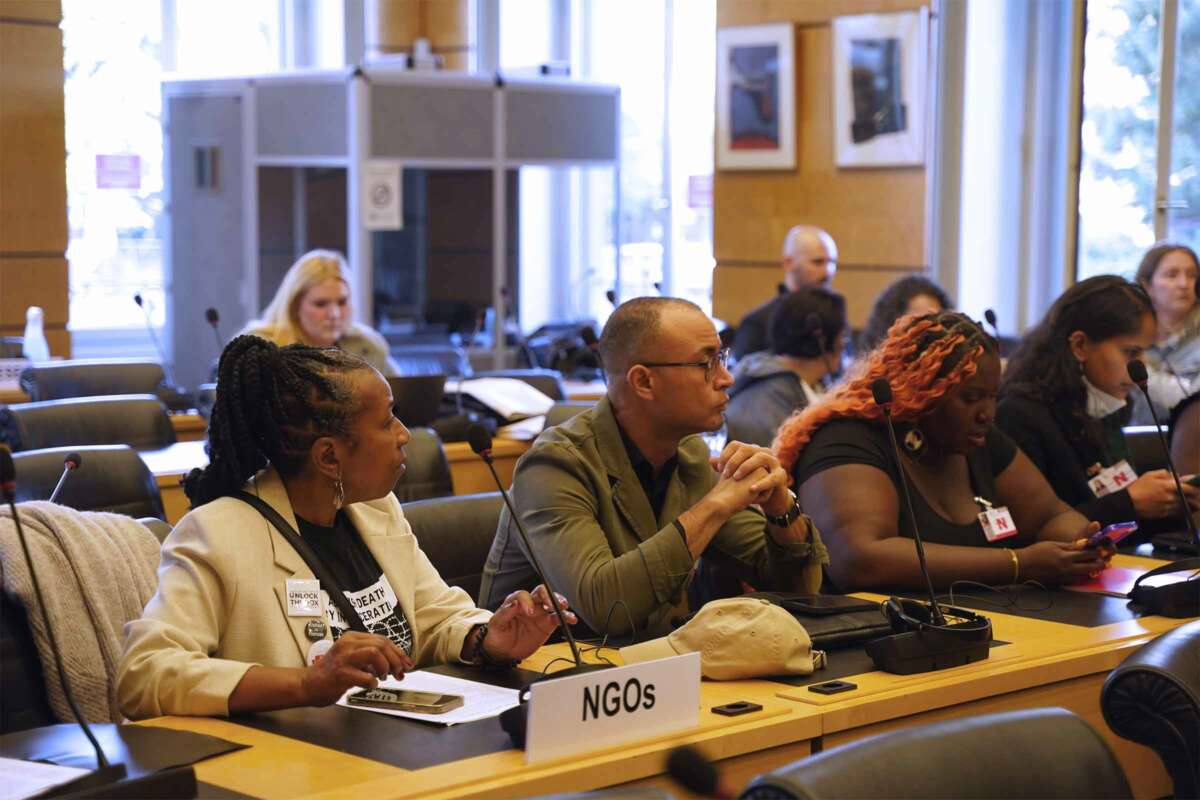
The UN has called for an end to death by incarceration. Now the onus is on state legislators, governors and courts to implement these recommendations by ruling death by incarceration sentences unconstitutional, commuting people with death by incarceration sentences, and passing legislation to provide parole eligibility to people serving death by incarceration sentences in their states.
As advocates and organizers, it’s our responsibility to hold the state and its institutions accountable to complying with the UN recommendations. We do this by unrelenting pressure on the U.S. to live up to its international and domestic obligations to protect and respect the civil rights, and more importantly, the human rights of people trapped within the carceral state.
The U.S. is not above international law, nor is above reproach and accountability and any attempt on its part to retreat from its obligations should be met with stiff resistance.
Press freedom is under attack
As Trump cracks down on political speech, independent media is increasingly necessary.
Truthout produces reporting you won’t see in the mainstream: journalism from the frontlines of global conflict, interviews with grassroots movement leaders, high-quality legal analysis and more.
Our work is possible thanks to reader support. Help Truthout catalyze change and social justice — make a tax-deductible monthly or one-time donation today.
